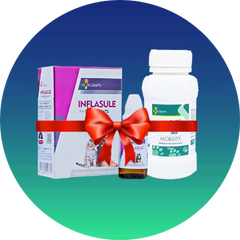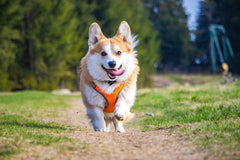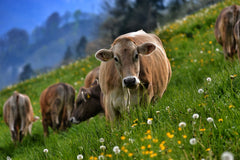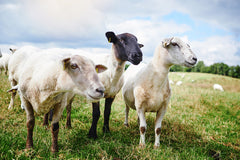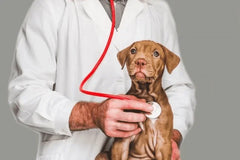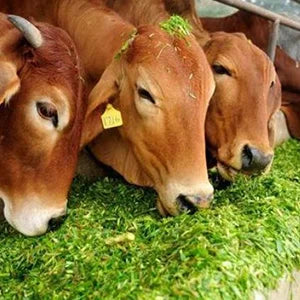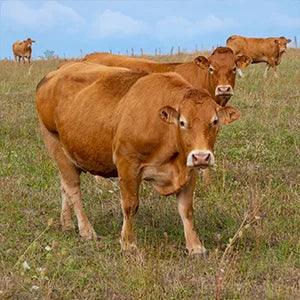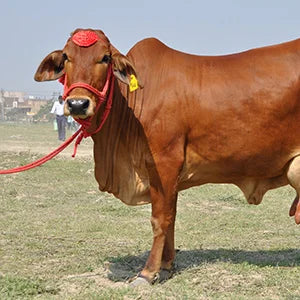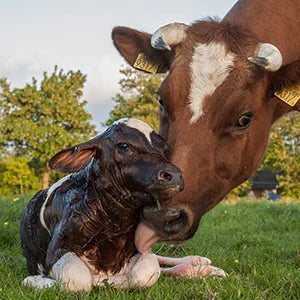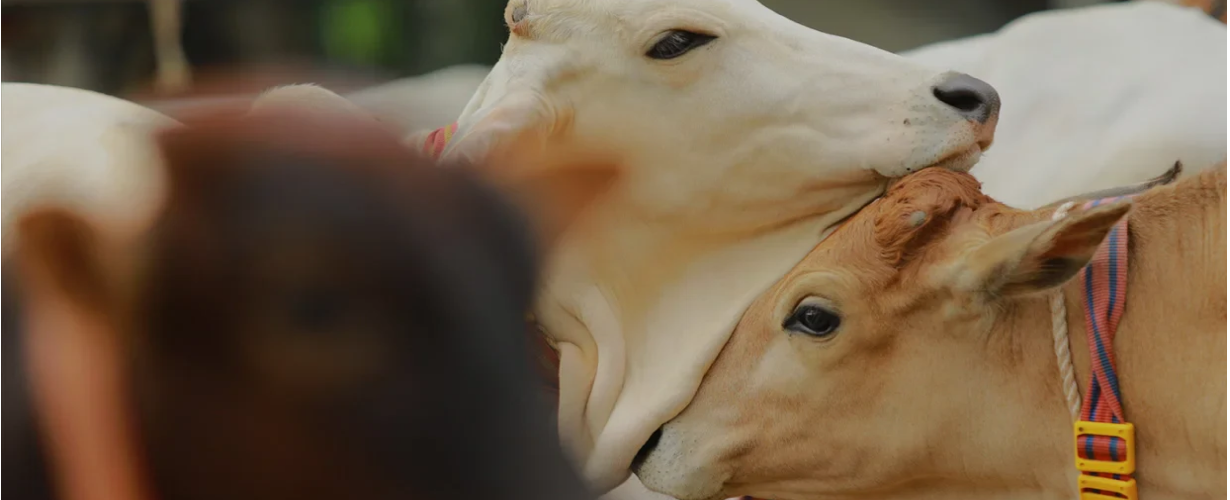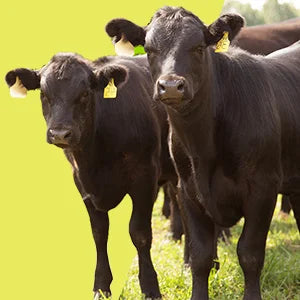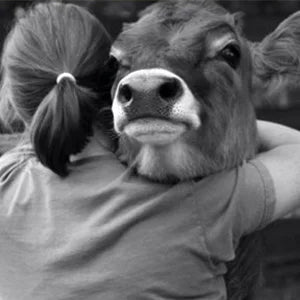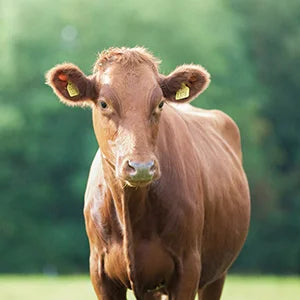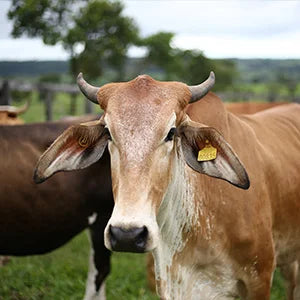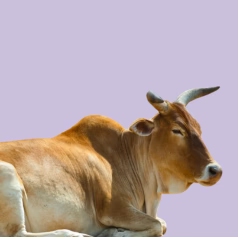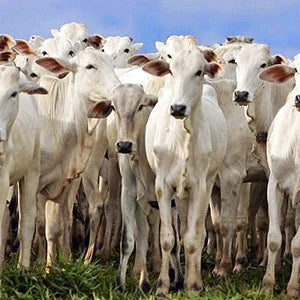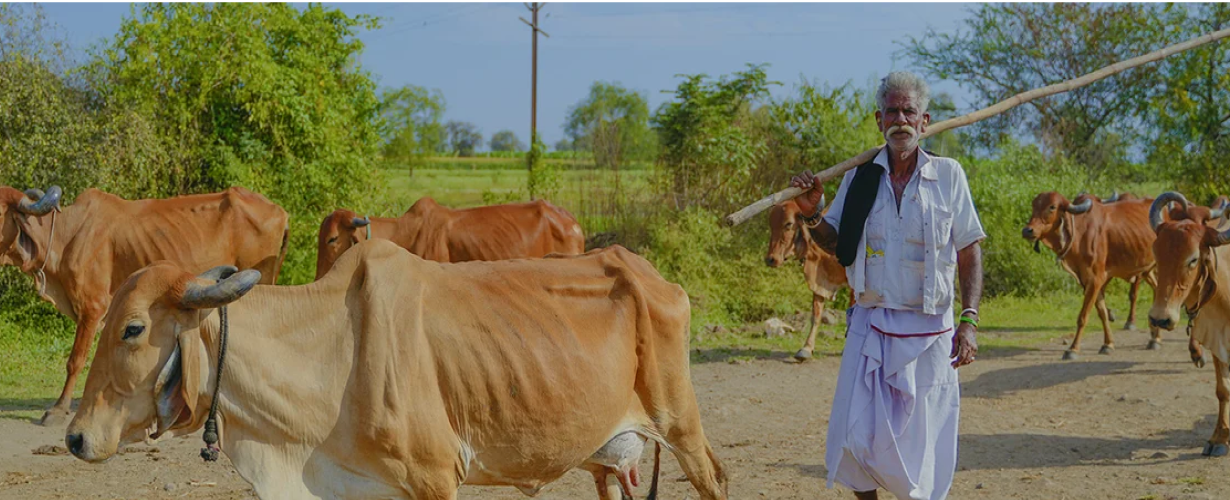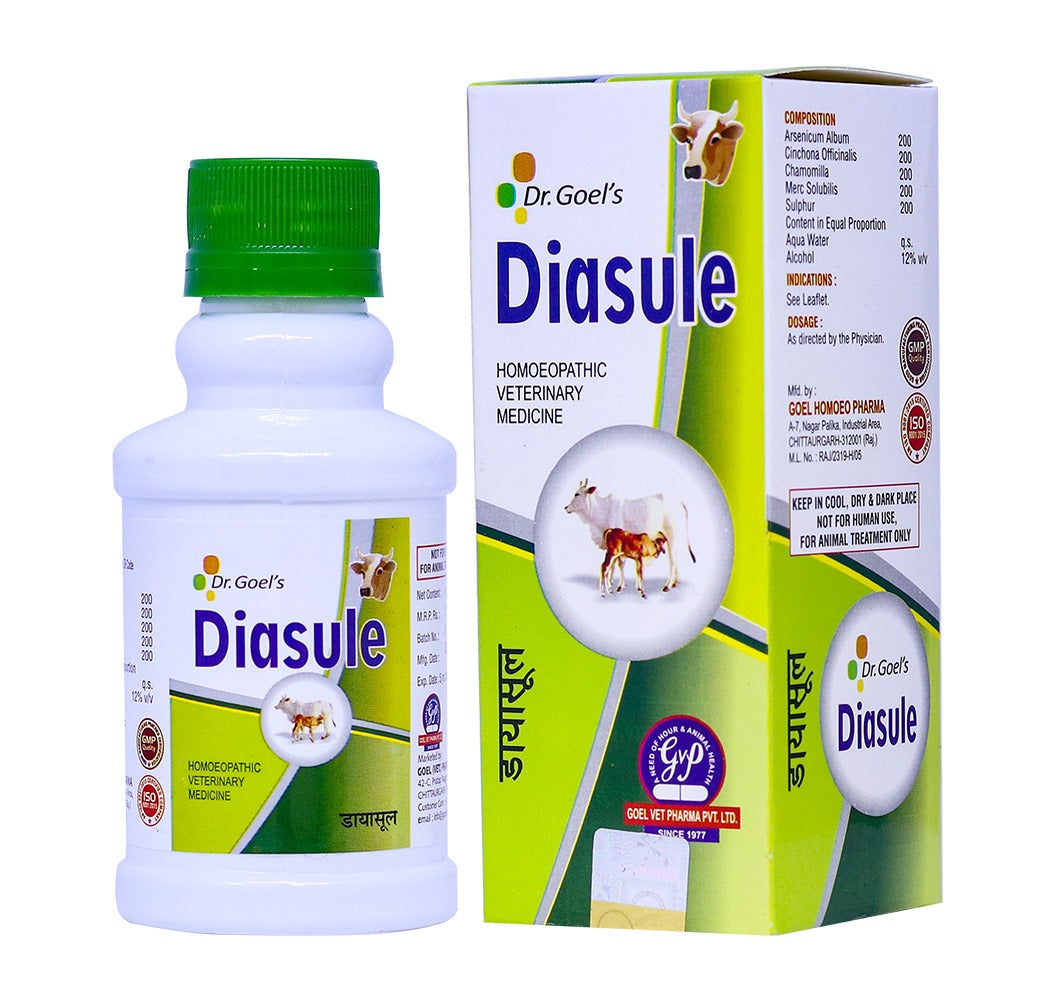Diarrhea in cattle, a common issue, arises from various factors like infections, parasites, dietary changes, stress, or calving-related issues in calves. Maintaining hygiene, providing balanced nutrition, clean water, and reducing stressors are essential preventive measures. Prompt veterinary attention and tailored treatments help manage diarrhea, ensuring the overall health and well-being of the cattle.
Common causes of Diarrhea in Cattle include:
-
Infectious Agents
Bacteria such as Escherichia coli, Salmonella, or Clostridium perfringens, as well as viruses like Rotavirus or Coronavirus, can cause diarrhea in cattle.
-
Parasites
Internal parasites such as roundworms, tapeworms, or coccidia, as well as external parasites like ticks or lice, can lead to diarrhea.
-
Dietary Factors
Sudden changes in diet, consumption of toxic plants, mycotoxins in feed, or poor-quality or contaminated feed can disrupt the digestive system, causing diarrhea.
-
Stress and Management Factors
Environmental stressors like transportation, overcrowding, or sudden changes in routine can weaken the immune system, making cattle more susceptible to diarrhea-causing pathogens.
-
Calving or Nursing
Diarrhea in calves often results from inadequate colostrum intake, infections, or changes in their diet.
Tips for Prevention diarrhea disease in Cattle
Preventing diarrhea in cattle involves maintaining cleanliness in their living environment, ensuring a balanced diet, and controlling parasites effectively. Minimizing stressors and providing proper colostrum to newborns are crucial. Regular monitoring for signs of illness and following vaccination schedules help in early detection and prevention. These measures collectively support the overall health of the herd and significantly reduce the likelihood of diarrhea occurrences. Consulting a veterinarian for specific guidance tailored to the herd’s needs enhances these preventive efforts.
Symptoms of diarrhea in Cattle
-
Loose or Watery Stool
Visible changes in stool consistency, often appearing more fluid than usual.
-
Increased Defecation Frequency
Cattle might defecate more frequently than normal.
Difficulty in achieving successful pregnancies despite regular mating or artificial insemination.
-
Dehydration
Signs of dehydration like sunken eyes, dry muzzle, or decreased skin elasticity.
-
Higher Rates of Pregnancy Loss
Increased instances of early embryonic death or miscarriages. 5. Delayed Puberty: Late onset of sexual maturity in heifers.
-
Loss of Appetite
Cattle might show a decreased interest in eating or refuse to eat altogether.
-
Weight Loss
Diarrhea can lead to rapid weight loss in cattle.
Trusted by Veterinarians
“As a veterinarian, I am thrilled to endorse Dr. Goel Vet Pharma’s homeopathic products for our furry friends. Their commitment to advancing homeopathic veterinary medicine is evident in the exceptional quality of their products. The innovative solutions they provide have significantly enhanced our ability to care for our animal patients, ensuring optimal health outcomes. I highly recommend Dr. Goel Vet Pharma’s products to pet parents for their unwavering dedication to the well-being of pet animals and the invaluable support they offer to the veterinary community.”
– Dr. Sakshi Sharma (B.V.sc. & A.H. M.V.Sc , NET)
Treat your Cattle from Diarrhea
DIASULE for CATTLE is the best Homeopathic Veterinary Medicine for Cattle that protects animals from infectious diarrhea. DIASULE for CATTLE is the best combination of different homeopathic medicines which has proven effective in different types of diarrhea in large animals.




